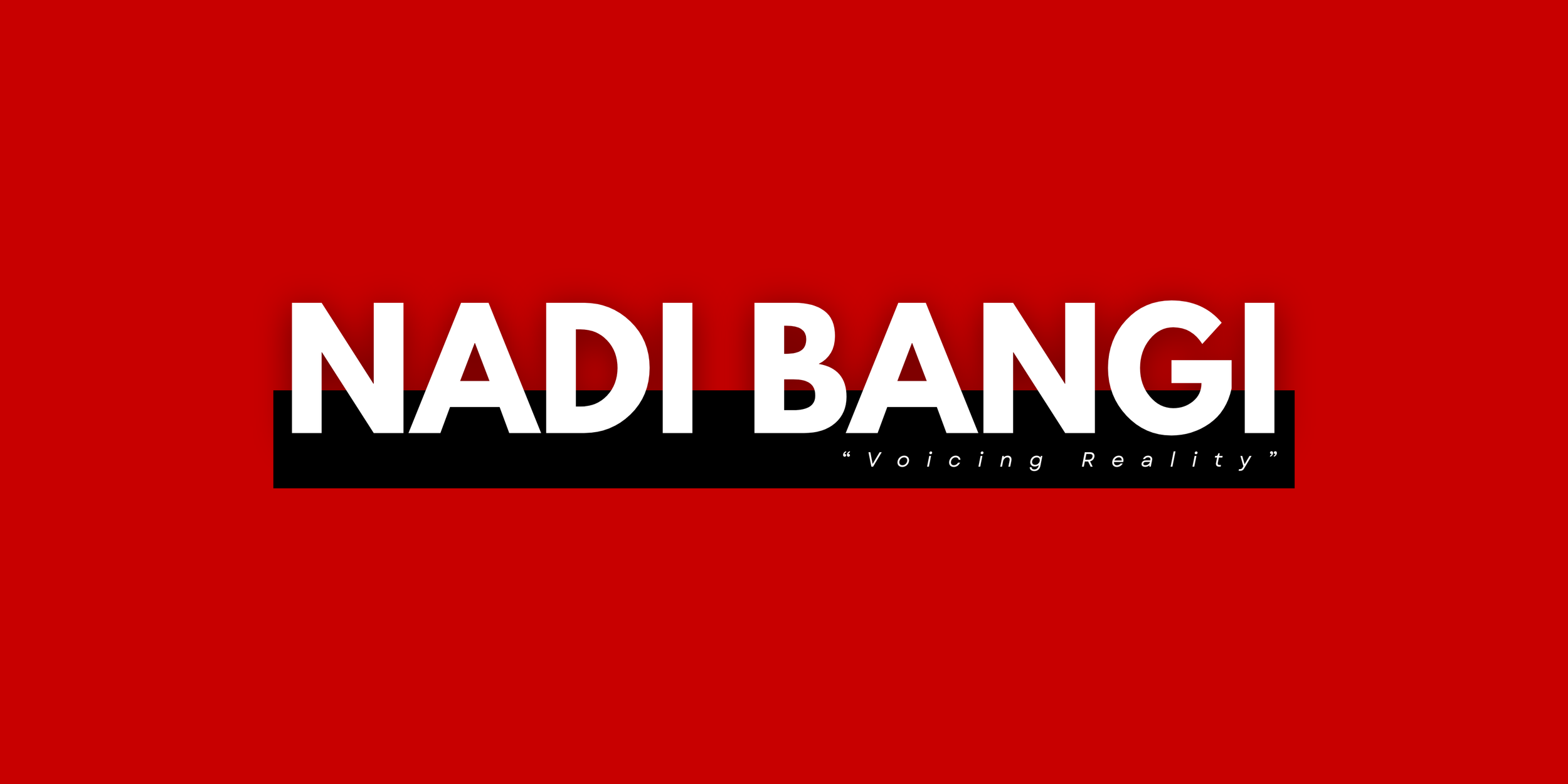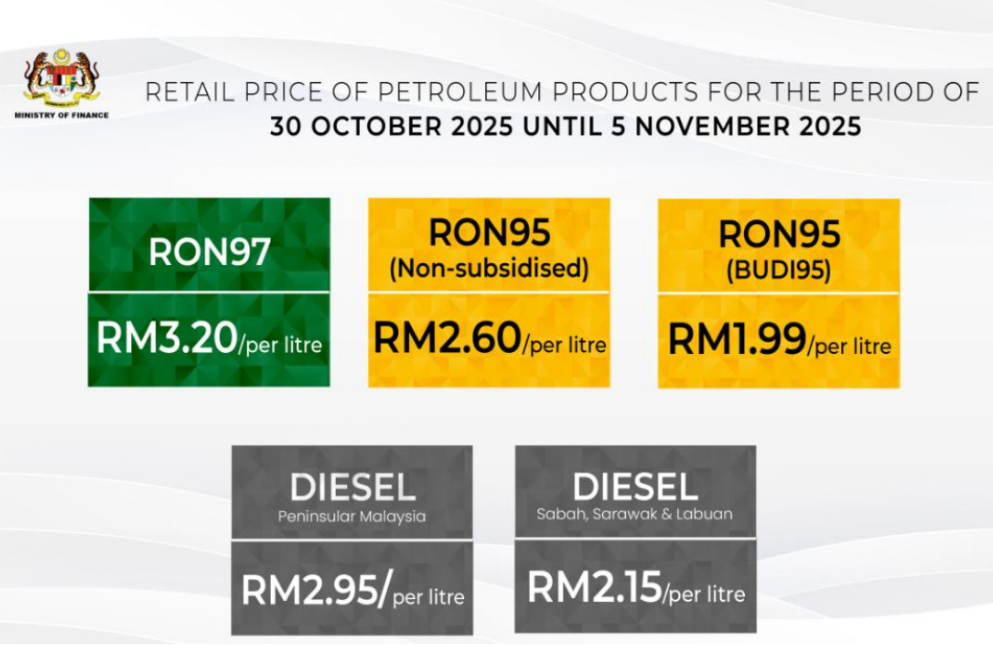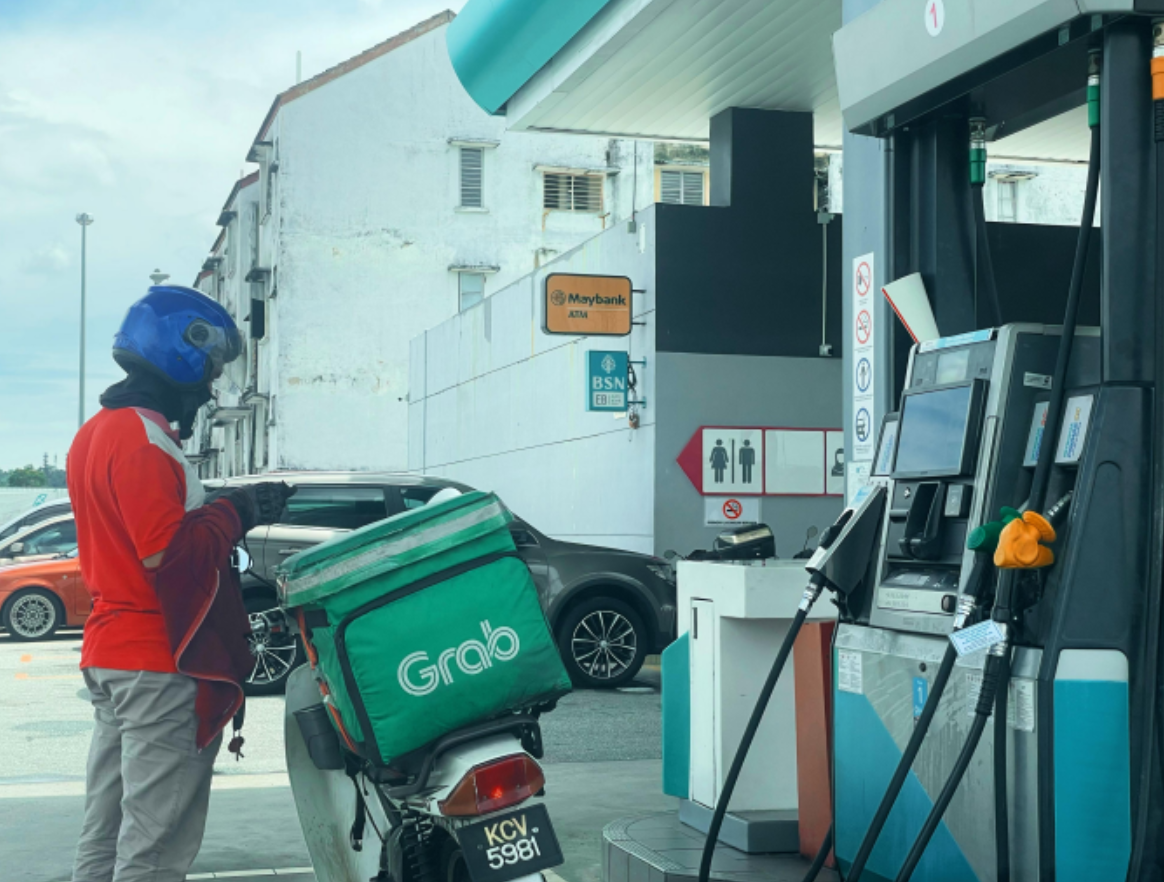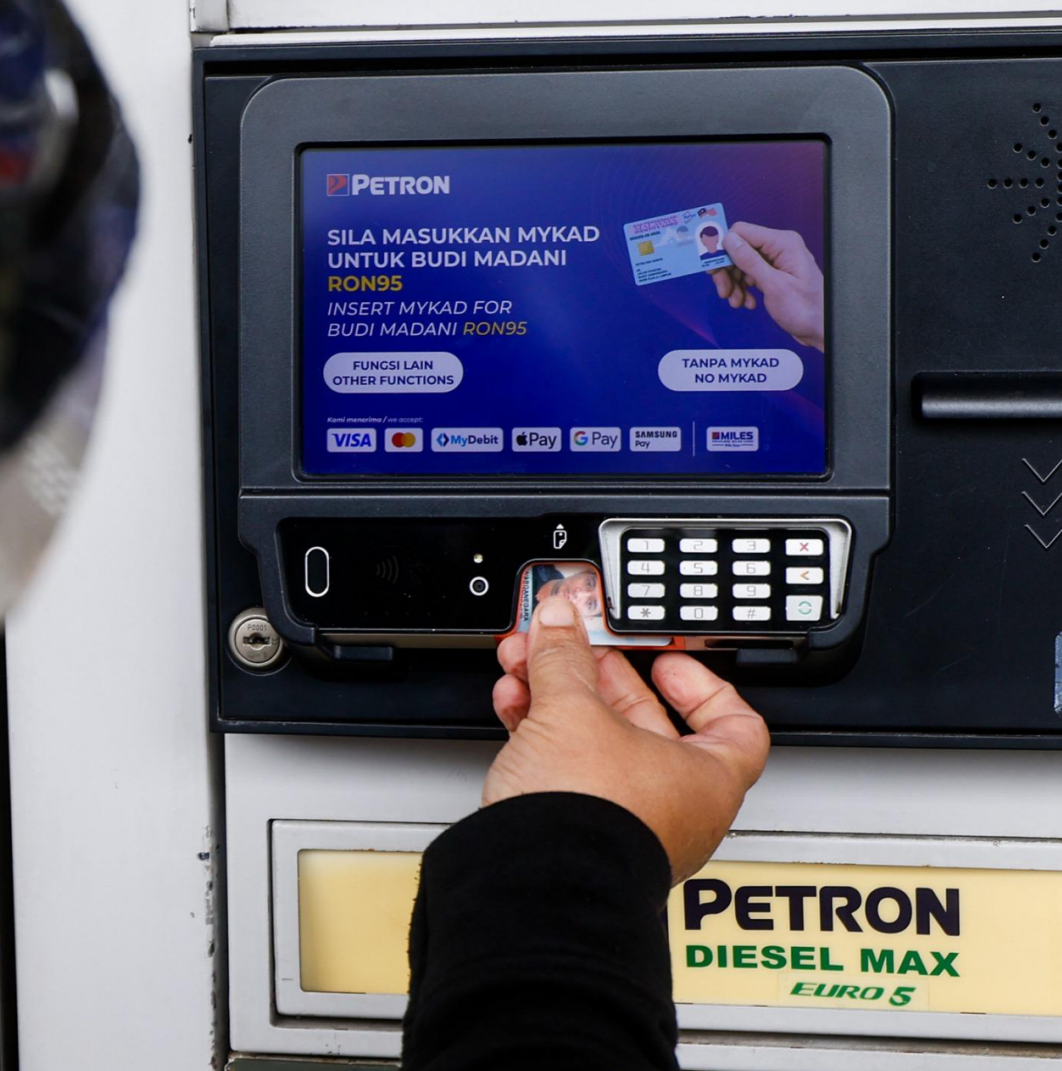
More Than a Fill-Up: How Dual Pricing Shapes Livelihoods
8 November
By: Jing Shiwei
Editor: Wang Peixue
(Source: The Ministry of Finance)
At Petronas Seksyen 16, Bandar Baru Bangi, motorbikes slip between cars, small Protons and Peroduas queue in order, and the terminal beeps blend with idling engines—the everyday Malaysia. What isn’t obvious at first glance is that the same pump is charging two prices.
Since Malaysia rolled out the targeted fuel arrangement—citizens can buy RON95 at RM1.99/litre within a monthly limit, while non-citizens pay RM2.60—the petrol station has become the most honest place to see how policy lands: no slogans, just the number on the screen.
Next to one pump stood Ahmad Syafiq, a young delivery rider. “Before, I needed at least RM20 to fill my tank; now around RM15,” he said, helmet tucked under his arm. Riding daily, that RM5 difference compounds to real money by month’s end. For him, the price is not a political statement; it’s proof the system remembered riders.
Ahmad Syafiq was refueling.
Standing there, he looked like the exact person the government had in mind when it said subsidies should stay with Malaysians. He earns from moving around; cheaper fuel means he actually keeps more of what he earns. His mobility is his income. For him, the RM1.99 price was not a political message — it was a sign that, at least this time, the system remembered riders.
A few meters away, Hengzhi Hu, a Chinese national lecturing in Universiti Kebang saan Malaysia(UKM), finished filling his small car and paused. “Before, about RM50 could fill my tank; now around RM70,” he said. His workplace has no convenient public transport and ride-hailing surges at commute hours, so a car keeps costs predictable—until the fuel change raised that baseline. He doesn’t oppose the policy:“This is Malaysian taxpayers’ money; helping citizens first is normal.” Still, he wonders about long-term foreign staff who teach, research, and People who have contributed to Malaysia here: “Maybe not RM1.99, but perhaps a smaller gap for those contributing and commuting daily.”
Petronas Seksyen 16 Bangi
What is important, though, is that he did not reject the policy. “I actually understand the Malaysian government,” he said. “This is Malaysian taxpayers’ money. It is normal to help Malaysian citizens first.” That part, he said, he respected. But he also felt something was missing.
On the other bay, Gerald Ser Tze Zhen, a co-partner of a small restaurant, said, “I drive from Bangi to ST Rosyam Mart (Semenyih) every morning for the day’s fresh ingredients.” He was in the middle of delivering meals to Chinese international students—orders are placed directly via WeChat; because some residences aren’t serviceable by Grab, they run a group to take orders and dispatch in batches, “usually two to three rounds a night.” On the RM1.99 citizen price, he was blunt: “It cuts our fuel spend and, in a thin-margin business, that directly lifts our profit.” He also agreed with Hengzhi’s point: foreign workers who contribute to Malaysia and pay taxes might reasonably receive some form of concession—even just a narrower price gap.
(Source: Nanyang Siang Pau)
Seen this way, the station in Bangi was quietly showing two Malaysias at once. One Malaysia, represented by Ahmad, was clearly protected: citizens who drive daily, especially lower- and middle-income workers, could now top up more cheaply and feel immediate relief. The other Malaysia, represented by Hengzhi, was also working, also here every day, also keeping part of the system running — but was now paying RM20 more every time he filled a tank. One walked away thinking, “Kerajaan ingat kita.” The other walked away thinking, “I understand, but can Malaysia also see us?”
Mengenai kami
Nadi Bangi adalah portal akhbar makmal Program Komunikasi Media, Fakulti Sains Sosial dan Kemanusiaan, Universiti Kebangsaan Malaysia (UKM). Sebarang pandangan atau kandungan yang disiarkan tidak mewakili UKM. Ditubuhkan dengan objektif untuk menjadi suara warga kampus, Nadi Bangi menyajikan laporan berita, rencana khas, serta pandangan kritis berkenaan isu semasa yang berlaku di dalam dan luar kampus.



